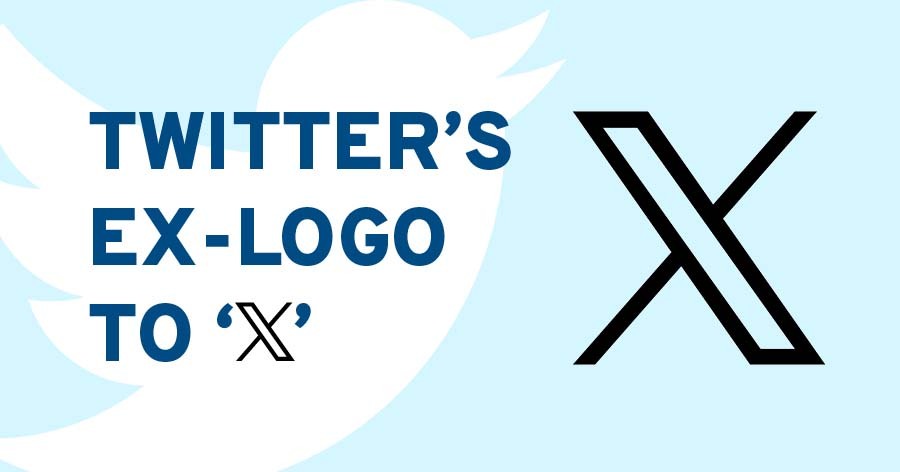
In recent years, the world has witnessed a fascinating and rapidly changing landscape of brands and trademarks. From multinational corporations to individual celebrities, trademark registration has become a crucial aspect of protecting one’s identity and Intellectual Property. Recently, the world witnessed a significant event when Elon Musk, the renowned Entrepreneur and CEO of companies like Tesla and SpaceX, replaced his Twitter profile picture with a simple letter “X.” This seemingly innocuous action sparked curiosity and discussions about the possibility of Trademark registration of a single alphabet in India and its implications in the global business landscape. This blog delves into the realm of Trademark Law in India, explores the requirements and challenges in regard to the Trademark registration of a single alphabet, and analyzes the case of Elon Musk’s “X” adoptions as a means to better understand the implications and significance of such a move.
Moving ahead, the crucial question being squarely posed is can a Single Alphabet Be Trademarked in India?
When assessing the Registrability of a single alphabet under Trade Marks Law, the following factors are considered:
Henceforth, The Indian Trademarks Act does not explicitly prohibit the Registration of single alphabets. Trademark registration is possible, if and only if the single alphabet fulfills the criteria of being distinctive and not descriptive of the goods or services it represents. The mark should not be generic or common to the trade and must be capable of distinguishing the applicant’s goods or services from others. The courts have repeatedly held that under the Indian Trademark’s law, if the customers and services offered by the company are different, similar trademarks may be protected.
Now discussing the Elon Musk’s recent “X” Adoptions replacing the acquainted Twitter Logo:
In December 2022, Elon Musk surprised his followers on Twitter by changing his profile picture to a simple letter “X.” This decision immediately attracted attention and speculation about its significance. Some speculated that it might be related to the launch of a new product or company, while others pondered if it was merely Musk’s way of expressing his enigmatic personality. Regardless of the reason behind the move, this action raised the question of whether Elon Musk intends to trademark the single letter “X” in India or elsewhere.
Registering a single alphabet as a trademark, especially such a common letter as “X,” can be a complex and challenging process. One of the critical factors to consider is whether the chosen letter has acquired a secondary meaning in the relevant industry. In my perspective, if the letter “X” is uniquely associated with Elon Musk’s ventures in the eyes of the public, it might strengthen his case for trademark protection. Suppose Elon Musk or any individual or entity wishes to trademark the single alphabet “X” in India then in that case, they would need to demonstrate that the mark is inherently distinctive or has acquired distinctiveness through extensive use in association with their goods or services. If “X” is already commonly used or perceived as generic, it could face challenges during the Registration process. It is herein important to note that registering a trademark is not a pre-determined process. The application undergoes a thorough examination by the Trademark Authorities, and they may raise objections if they find any issues with the proposed mark. Additionally, if other parties believe that their existing trademarks might be affected by the registration of “X,” they could oppose the application.
While the concept of trademarking a single alphabet might seem intriguing, it is not without its challenges and implications. The primary concern lies in the scope of protection such a trademark would offer. If granted, the trademark would only cover the specific usage of the single alphabet “X” in association with the applied goods or services. However, enforcing the trademark against others who use the letter “X” for different purposes might prove to be complicated. For instance, if “X” is registered for use in association with electric vehicles, it may not prevent someone from using “X” as part of their brand name for a restaurant or a software company.
In conclusion, Trademark registration of a single alphabet in India is indeed possible, but it comes with its challenges. Elon Musk’s adoption of the letter “X” as his Twitter profile picture has sparked discussions about the feasibility and implications of such a move. While it is yet unclear whether Musk intends to seek trademark protection for the letter “X”, this event still highlights the importance of trademarks in protecting brand identity and reputation.
Trademarking a single alphabet can be an effective branding strategy, especially for prominent figures like Elon Musk. However, it is essential to understand that trademark protection is context-specific and may not guarantee absolute exclusivity for a commonly used symbol or letter. As the success of Trademark registration of a single alphabet depends on its distinctiveness, lack of Genericness and potential secondary meaning. Businesses and entrepreneurs looking to pursue such a trademark should carefully consider the uniqueness and associations of the chosen alphabet within their respective industries. We believe as the world of branding continues to evolve, it will be intriguing to see how the concept of trademarking single alphabets unfolds in the years to come.